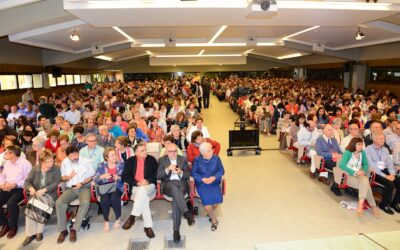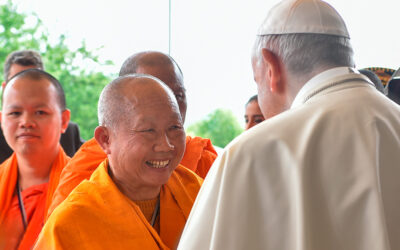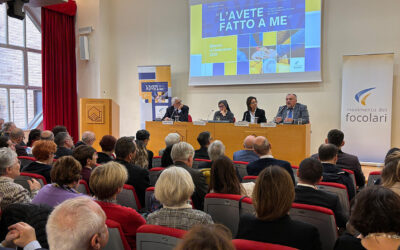This year the “Week of Prayer for Christian Unity” celebrates its centennial. The “Octave of Prayer for Christian Unity” was first celebrated from January 18-25 in 1908. Sixty years later, in 1968, the Week of Prayer for Christian Unity was jointly prepared by the Commission on Faith and Order of the World Council of Churches and by the Secretariat for Promoting Christian Unity of the Catholic Church. From that time on, it has become common practice for them to meet together annually to compile the pamphlet using material with suggestions for the celebration of the Week of Prayer prepared by Christians from different Churches in a particular country.
The words of Scripture chosen this year by a large ecumenical group in the United States are taken from the first letter of St. Paul to the Thessalonians, in Greece. They were a small young community, and Paul felt that the unity among them had to become more and more solid. That was why he urged them: “Be at peace among yourselves. … be patient with all. See that no one returns evil for evil; rather, always seek what is good both for each other and for all. … Pray without ceasing..” He wanted to stress that the life of unity of the Christian community is possible only through a life of prayer. Jesus himself prayed to the Father for the unity of his disciples: “that they may all be one” (Jn 17:21).
“Pray without ceasing”
Why should we “pray without ceasing”? Because prayer is essential to being human. We were created in the image of God, as a “you” of God, capable of establishing a relationship of communion with him. Friendship with him, spontaneous conversation with him, conversation that is simple and true – this is prayer. It is part of our very being, allowing us to become authentic persons with the full dignity of sons and daughters of God.
Created as a “you” of God, we can live in constant rapport with him, with our hearts filled with love by the Holy Spirit and with the trust that one has towards one’s own father. This is a trust that draws us to speak with God often, to tell him openly about ourselves, our thoughts, our plans. This is a trust that makes us yearn for those moments we dedicate to prayer – moments set aside in days filled with other duties at work and in the family – in order to enter into a profound connection with the One who we know loves us.
We need to “pray without ceasing” not only for our own needs, but also for our contributions to building up the Body of Christ, and our contributions to building the full and visible communion of the Church of Christ. We can understand something of this mystery if we think of a series of communicating vessels. When we pour water into one of them, the liquid level in all the others is raised as well. The same thing happens when we pray and raise our souls to God to adore and thank him. When one of us is elevated in prayer, the others are elevated as well.
“Pray without ceasing”
How can we “pray without ceasing,” especially when we are in the whirlpool of daily living?
To “pray without ceasing” does not mean multiplying our prayers. Rather, it means directing our hearts and lives towards God, living out God’s will for us, whether it be studying, working, suffering, resting or even dying for him. We will reach the point where we will no longer be able to live our daily lives without doing everything in agreement with him.
In this way our actions will be transformed into sacred actions and the whole day will become a prayer.
It may be helpful to offer to God everything we do by saying, “For you, Jesus,” and, in moments of difficulties, “What really matters? To love you is what matters.” In this way each thing we do is transformed into an act of love.
And thus prayer will be unceasing because love will be unceasing.
Chiara Lubich




0 Comments